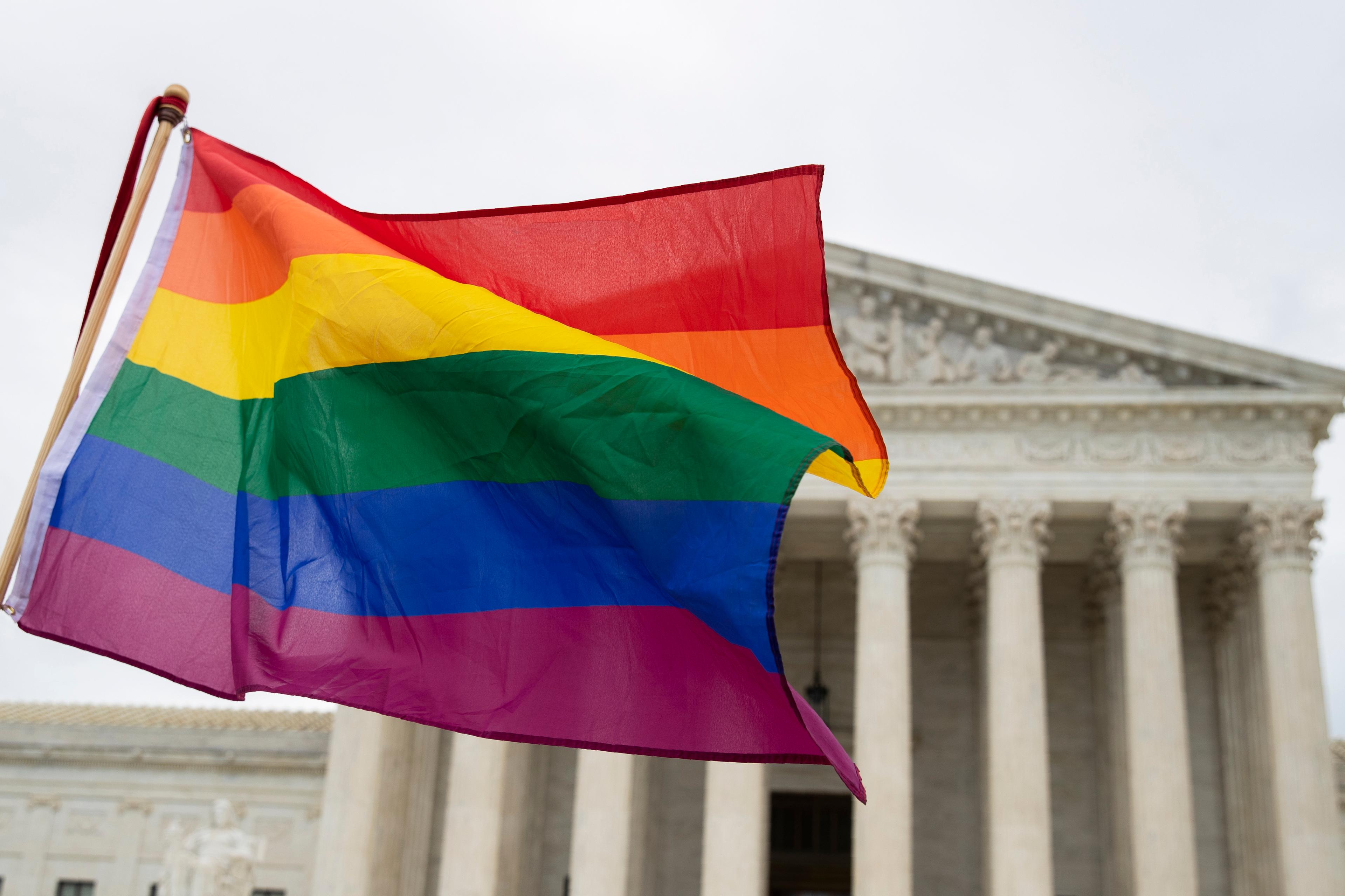
The same conservative law firm that represented a Colorado Christian graphic artist in a national freedom of speech case – and won that case before the U.S. Supreme Court in 2023 – has filed a similar lawsuit against the state’s ban on conversion therapy.
Alliance Defending Freedom claims that the state’s conversion therapy ban, which went into effect in 2019, violates Colorado Springs counselor Kaley Chiles’ freedom of speech. The suit names Patty Salazar in her official capacity as the director of the state’s Department of Regulatory Agencies. A spokesperson for the department told CPR News in an email that they do not comment on pending litigation.
The Minor Conversion Therapy Law prohibits mental health professionals in Colorado from attempting to change a client’s sexual orientation or gender identity during sessions.
There are more than 20 states and 100 jurisdictions with conversion therapy bans like Colorado’s in place. The policies began cropping up in 2013 after a ruling in Pickup v. Brown categorized counseling as a form of mental health treatment, and therefore classified therapist treatments as a form of professional conduct rather than speech. That change afforded states greater leeway to set regulations around what can happen during therapy sessions.
Three judges dissented in that ruling and now, the Third, Ninth, Tenth and Eleventh Circuits are evenly split on whether states should be allowed to ban conversion therapy altogether.
State Sen. Dafna Michaelson Jenet, a Democrat, helped write Colorado’s Minor Conversion Therapy Law. She says she’ll do whatever it takes to keep the law on the books.
“Conversion therapy is offered sometimes in religious settings, sometimes in secular settings, as a way to change someone from being gay to being straight,” she said. “It sets us back a very long way. If we have to start fighting this battle again, we will.”
Conversion therapy was denounced by many scientists in 2009 when the American Psychological Association published an extensive report on appropriate therapeutic responses to sexual orientation. The group found that conversion therapy can cause depression and suicide in clients. The state used some of those scientific findings as the basis for its law.
“I'm feeling exceptionally concerned. These rights to protect our children are critical and we know that children have died from this type of treatment,” Michaelson Jenet said.
Currently, if counselors break Colorado’s Minor Conversion Therapy Law, they can have their license revoked and be fined up to $5,000.
The request for the Supreme Court to hear Chiles’ case comes after the Tenth Circuit Court of Appeals upheld the Colorado law in September.
“The U.S. Supreme Court needs to step in and determine that when a counselor speaks to her client and uses words, that is fundamentally speech under the First Amendment,” said Cody Barnett, Chiles’ attorney.
In court records, Chiles claims she only works with clients voluntarily and that they “believe their faith and their relationships with God supersede romantic attractions and that God determines their identity according to what He has revealed in the Bible rather than their attractions or perceptions determining their identity.”
In Colorado, however, parents and guardians of people under the age of 18 can legally bring their child to therapy, regardless of whether they want to go or share their parents’ religious beliefs.
“For children who are still under the control of their parents, and those parents do not agree with or support children who come out as LGBTQ+, this has been a way of controlling the children and trying to change them into the image that the parent sees as acceptable,” said Michaelson Jenet.
Chiles’ lawsuit claims the Minor Conversion Therapy Law unlawfully censors private conversations between clients and counselors.
“The important takeaway here is just that the government can't censor private speech between [an] individual and his or her chosen counselor. Everyone deserves to be able to go to a counselor and set the goals that they want to achieve without the government telling them not to,” Barnett said.
Should the Supreme Court choose to hear the case, and if it decides that conversations between mental health professionals and their clients are protected by the First Amendment and should not be regulated under the category of professional conduct, it could roll back conversion therapy bans across the nation.
The court is in its current session until April. New cases are typically taken up after the summer recess in October.









